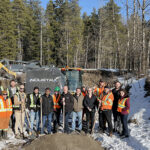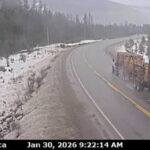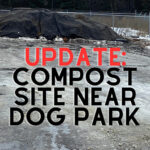Home »

B.C. invites submissions on proposed Land Act amendment
The B.C. government is inviting written submissions on proposed changes to British Columbia’s Land Act, which if approved would provide a mechanism for government and First Nations to make land-use decisions together.
“The province wants to know your thoughts on sharing public land use decision-making. This information will help ensure the path forward is informed by a range of perspectives and solutions,” the government stated on its website.
However, finding information on the proposed changes is not easy and the process was not rolled out with the usual public relations model including media releases with ministerial word-bites. Public awareness came via notices to stakeholders in early January, creating a strong ripple of suspicion amongst many sectors in the province, especially industry fearing sweeping veto power for First Nations.
Bruce Pardy, a Queen’s University law professor stated in a national op-ed column, “B.C. could become an untenable host for land-based, resource-related enterprise. Impenetrable layers of red tape would entangle applications for leases and licenses. The price for First Nations approvals could be an increasing share of royalties and kickbacks, without which consent will be refused. Both governments and First Nations will siphon an ever-larger piece of a shrinking pie.
“The government’s timeline is short. Written submissions will be accepted until the end of March, and anyone giving feedback will be limited by how little information the B.C. government has offered in the consultation. Bureaucrats will begin drafting amendments to the Land Act in early February, and the government plans to introduce a bill in April or May.”
The First Nations Leadership Council (FNLC) stated in a Feb. 1 media release it is concerned about “recent reactions to the Province of B.C.’s proposed Land Act amendments that are inaccurate and unhelpful, and implicitly rely on outdated, mistaken, and regressive views relating to the rights of First Nations.
“The proposed Land Act amendments are a critical next step for the province in fulfilling its commitments under the Declaration Act and to align its decision-making processes with the UN Declaration and FNLC supports the province’s work in this regard. The amendments will allow the province to negotiate decision-making agreements with First Nations under the Land Act in the future. Any agreements that are negotiated will be subject to the public engagement processes mandated under the Declaration Act.
“Contrary to comments that have been made about the proposed Land Act amendments, they will not grant a ‘veto’ to First Nations governments, and they will not immediately alter the existing land tenure system in British Columbia. Rather, they will make space for the recognition and implementation of First Nations’ unceded governance rights in relation to land and resource development in their territories – through negotiation and agreement with the province in accordance with the Declaration Act – rights which have been largely ignored by colonial governments for the last century and a half.”
The FNLC is comprised of the political executives of the BC Assembly of First Nations, First Nations Summit and the Union of BC Indian Chiefs.
The following provides information about the Land Act amendment and how to engage with the province on it.
Engagement summary
“The 2019 Declaration on the Rights of Indigenous Peoples Act (DRIPA) is the provincial framework for reconciliation with Indigenous peoples. DRIPA provides flexibility for the province to enter into agreements with Indigenous governments to share decision-making on the use of public land together. However, amendments to pre-existing legislation (like the Land Act) are required to make this happen. DRIPA establishes the United Nations Declaration on the Rights of Indigenous Peoples as the province’s framework for reconciliation. The Declaration Act aims to create a path forward that respects the human rights of Indigenous peoples while providing better transparency and predictability related to the work we do together.”
View the virtual session slide deck.
Written submissions will be accepted by the Ministry of Water, Land and Resource Stewardship until 4 p.m. on March 31.
Go here to make a written submission.
e-KNOW







